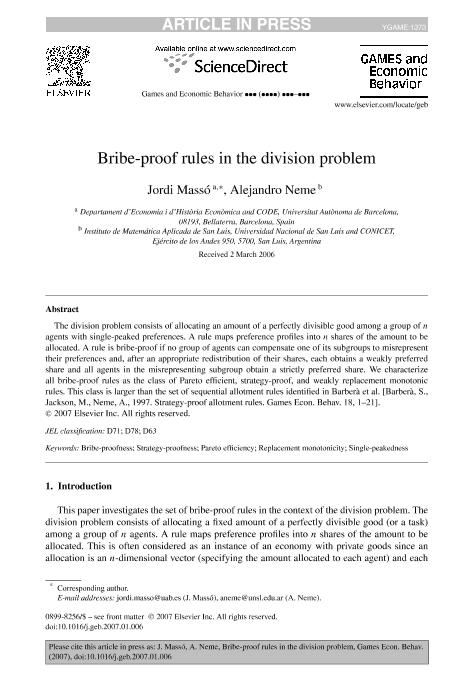Artículo
Bribe-proof rules in the division problem
Fecha de publicación:
11/2007
Editorial:
Elsevier
Revista:
Games and Economic Behavior
ISSN:
0899-8256
Idioma:
Inglés
Tipo de recurso:
Artículo publicado
Clasificación temática:
Resumen
The division problem consists of allocating an amount of a perfectly divisible good among a group of n agents with single-peaked preferences. A rule maps preference profiles into n shares of the amount to be allocated. A rule is bribe-proof if no group of agents can compensate one of its subgroups to misrepresent their preferences and, after an appropriate redistribution of their shares, each obtains a weakly preferred share and all agents in the misrepresenting subgroup obtain a strictly preferred share. We characterize all bribe-proof rules as the class of Pareto efficient, strategy-proof, and weakly replacement monotonic rules. This class is larger than the set of sequential allotment rules identified in Barberà et al. [Barberà, S., Jackson, M., Neme, A., 1997. Strategy-proof allotment rules. Games Econ. Behav. 18, 1–21]
Archivos asociados
Licencia
Identificadores
Colecciones
Articulos(IMASL)
Articulos de INST. DE MATEMATICA APLICADA DE SAN LUIS
Articulos de INST. DE MATEMATICA APLICADA DE SAN LUIS
Citación
Jordi, Massó Carreras; Neme, Alejandro José; Bribe-proof rules in the division problem; Elsevier; Games and Economic Behavior; 61; 2; 11-2007; 331-343
Compartir
Altmétricas




